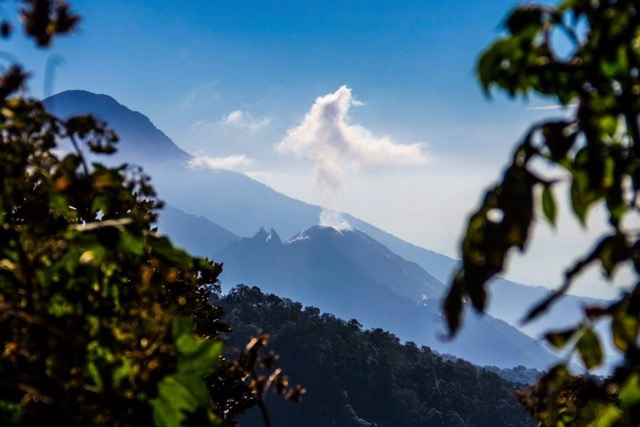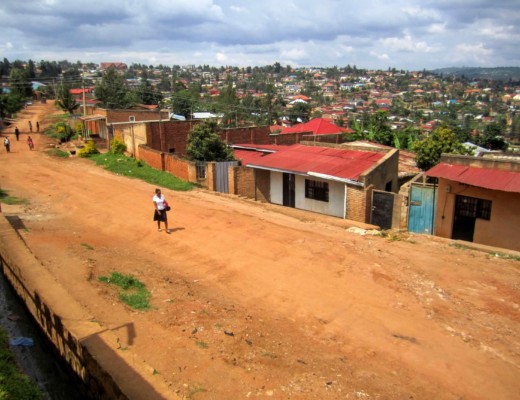New Jersey native Audra Kyrk earned her Master’s Degree from Tulane University’s School of Social in December 2012 with a hankering to learn more. Unsure of her next career steps, she knew two things: She wanted to improve her Spanish skills and spend more time abroad. Kyrk enrolled in a six-week language immersion program in Quetzaltenango, Guatemala and now, three years later, remains at the school working with students as an international coordinator.
“I had my round-trip ticket booked before I came here,” Kyrk shared about her extended journey. “I returned home to New Jersey and knew immediately that I would come back.” She described being immediately taken by the Guatemalan way of life. From the comfortable atmosphere in Quetzaltenango (more popularly known as Xela to Guatemalan natives) to the friendly, welcoming people, Kyrk identified an appreciation for the deep-rooted cultural values of gifting and sharing, even when people have little to give.
Proyecto Lingüístico Quetzalteco’s (PLQ) language program attracted Kyrk immediately due to its social concentration. “It doesn’t only focus on language and culture education, but also political education.” Each week, Kyrk leads a required orientation for incoming students, which focuses on Guatemalan history and current events. “Regardless of where you visit, you should know a country’s political situation. It creates solidarity and increases understanding of the locals’ feelings, behaviors and way of life.”
Guatemala has one of the highest poverty rates of any country in the Western Hemisphere and carries dramatic disparities in terms of distribution of wealth. Still, more than two million tourists visit the country annually. “Guatemala is becoming a language tourism destination,” Kyrk said. She attributes this to the country’s attractive history and culture, along with its arguably clear Spanish dialect. Kyrk is PLQ’s only international employee and fluent English speaker on staff.
Xela is a small city, making it easy for Kyrk to get around and access her basic daily needs. Her grocery shopping includes walking through local marketplaces piling baskets high with fruit and vegetables. “I love it, because all the walking and fresh produce keeps me healthy,” Kyrk shared.
The challenging lifestyle adjustments include living in a city with poorly supported infrastructure, crowded sidewalks and inconsistent access to electricity and water. She also described occasional store runs to replace the gas tank used to run her apartment stove. Luxuries are also more expensive, as they’re more limited. “You get what you get here,” Kyrk explained. “There aren’t excessive options, and you also don’t expect them. It’s a simple style of living. That doesn’t mean worse or less privileged – just different.”
As for her free time, Kyrk described an abundance of natural exploration, including soaking in hot springs and hiking volcanoes. “Many of the hikes from Xela involve walking through villages to reach these seemingly magical destinations. It forces me to learn more about the country’s ecology, and also to engage with different cultures and communities.” She noted that as the historic city of Xela has grown in popularity, especially among foreign travelers, so has its development of local activities, including an international food scene.
I interviewed Kyrk via FaceTime over her lunch break at PLQ. As we chatted, she forked at a pache, a local tamale-like cuisine made of rice puree, veggies, hot pepper and meat, rolled together in a mashan leaf, which resembles a palm tree leaf. Kyrk snagged the dish earlier that day from a “Senora” who sells plates out of her home near the school. Guatemala isn’t known for international dishes, but Kyrk described the local foods, many influenced from Mayan culture, as fresh and flavorful. Kyrk stressed the importance of putting aside time to travel and explore new cultures.
“Whether it’s for a week or year, traveling forces us to see different sides of ourselves.” She referenced the typical American as drowning days away in stress and exhausting conversations with the need for overdue vacations. “So do it!” She emphasized. “Take the vacation!”
She took it one step further and referenced the average American destinations to involve escaping to a beach to relax and disconnect from social and economic issues. “But, understanding a place politically and culturally – that exercises the brain in another way. It’s a different type of break that everyone should do at least once in their lives.”
Kyrk initially felt guilty about obtaining her Master’s degree and not following the popular path of getting licensed immediately. Her main piece of advice three years later? “Forgive yourself,” she said. “People become so focused on their career trajectories and busy daily responsibilities that they brush these types of experiences off as a waste of time and money. Forgive yourself for carving out the time. It will make you a more well-rounded, open-minded person in the end.”





1 Comment
Sara–insightful interesting and well written. Thanks. Love them all.